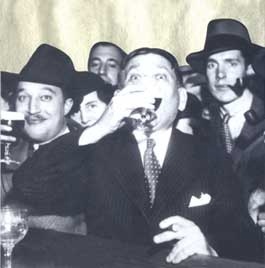Tim Worstall isn’t convinced that a recent study summarized in The Lancet is either honest or useful:
We have a new study out, in the Lancet no less, telling us that the new, lower, limits for reasonable alcohol consumption are just right. Well, of course the report says that, right? The problem being that it’s entirely contrary to the more general experience we’ve got of booze consumption. For, yes indeedy, there’s a level of drinking which will – as always, on average – shorten life. But our experience to date is that it’s several times what is the current measure of safe consumption. This basic understanding of ours being that no booze lowers lifespan, too much lowers it, a modicum increases it. The argument being the definition of modicum of course.
Observation of large populations being that modicum is anything from some up to perhaps 40 or even 50 units a week. This isn’t what the current study shows at all […]
I’m not in any manner a medical expert but that does look odd. 5 million observation years on half a million people, looks like 10 years on average per person. They’re using this to predict lifespan at age 40? When lifespan at 40 is, these days, a further 40 to 50 years or so? OK, maybe there’s some sekkrit decoder ring for epidemiologists here but anyone want to try and explain it?
Ah:
We focused our study on current alcohol drinkers
So the comparison doesn’t include those who don’t drink. We’re not therefore getting a baseline of no alcohol consumption to compare with. That is, by design, the study excludes the known to be higher death rates (or lower lifespans) of the temperance types. No, really:
Third, never-drinkers might differ systematically from drinkers in ways that are difficult to measure, but which might be relevant to disease causation.
Our more general stats do indeed say that heavy drinkers (that 40 to 50 unit level perhaps) and never drinkers have about the same lifespans. Quick, gotta exclude that information, eh?
As far as we’re concerned that’s probably enough. We’ll see what Snowdon has to say about it, shall we? Because this finding is contrary to pretty much everything else we know about booze consumption. Explaining why it is will be important.
Update, 15 April: It’s no wonder that people are confused about the benefits and/or drawbacks of drinking…
What you end up with when drawing strong conclusions based on non-experimental data with selection bias, lots of measurement error and dodgy comparison groups. (h/t: @RadaWilinofsky) pic.twitter.com/iUZQbTh6sB
— Amir Sariaslan (@AmirSariaslan) April 14, 2018




